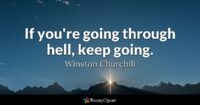I was born two months premature at three pounds and five ounces. Although I was fully developed at 21 inches long, I was really skinny. As I got older, my mother, a top-notch psychiatrist had organicity tests run on me. These are tests to see if there are any organic, or congenital-from birth, dysfunctions, due to my early arrival.
Interestingly enough, there were no real problems except one. The testers said that I had “Minimal Brain Dysfunction.” Nice, huh? This was what Attention Deficit Hyperactivity Disorder (ADHD) was called when I was a child. Both diagnoses mouthfuls, neither very appealing.
The usual prognosis was given. “The child may have difficulty concentrating, focusing, and finishing tasks. He will likely have problems with impulse control, sitting still, and keeping his mouth shut.” Although these all panned out, not necessarily for the reasons they mentioned.
Furthermore, as was the prevailing wisdom then, if you can call it that, we were told that the condition would dissipate over time. Supposedly, by the time I reached adulthood, I would be “normal,” whatever that is. Those who know me know how many of these things proved true.
No, I could not sit still. My mouth ran incessantly. I had a tendency to run too many projects at once, and I had insomnia with boundless energy. Although medications were tried, none truly produced the results doctors sought-control or sedation. Yet some things did work as I got older.
Intense exercise and structured environments gave me room to excel. In boarding school and the military I always reached the top of the class without medication. Eventually I integrated these external controls internally. Now that I am older, all of my peers envy my boundless energy and ability to do multiple tasks at once. There is even a name for it, “Multi-tasking.”
Ironically, what is called a disorder and drugged away, is an asset to me in this fast-paced society. Medication calls my condition a “disorder,” while lifestyle changes make it an “asset.” In this same way, all of our special traits give us advantages. To use Business School lingo, all of our weaknesses are really strengths when properly applied.
The incidence of ADHD in our society is increasing. Is it any wonder with our technologically wired light-speed lifestyles? I am not going to debate the nature versus nurture argument. What I am going to state is that in the right environment everything is an asset. Life is about discovering what you are and finding your niche.
Please do not take my story to mean that medication or psychiatry is wrong. In concert with the rest of my philosophy, all things in this world are for our gain. We just need to learn how to use them appropriately. “Discover what you are, and be that.”
-G







Definitely agree! Then there’s that last part that “we just need to learn how…”. For me, catching old habits “in the act”, and putting myself in places to learn by example are key.